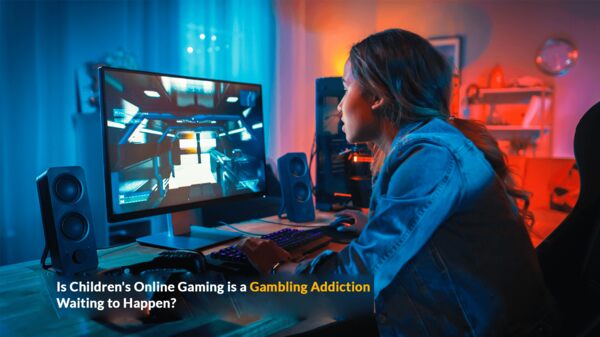The Difficult Conversation About Online Safety for Kids
There are a lot of conversations that parents should have with their kids that are difficult. Unfortunately, topics of a sensitive nature dissuade many parents from bringing them up. For one, they don’t want to inform their kids of something they might not yet know about. Things that existing online that would be harmful to their psyche.
Still, you also don’t want your kids stubmbling upon something harmful by accident will searching Google or clicking other links found on seemingly innocent websites. Since kids use our website for filtering the internet, we will explore this subject with sensitivity as we present the problem and various solutions with downloadable resources.
Protecting Kids from Explicit Content
It’s no secret that there is explicit material online that’s available to anyone with any device that has access to the internet. At some point in the growth of your child, they will learn about them at school, even if they have not yet explored the internet for them. We’ll discuss steps as to the best age to have a conversation with kids about these things and what to do in the meantime.
It would be ideal if all explicit material was at least behind a pay wall. This means a credit card is required to access it, and not a free for all that is currently is.
Cable companies have long provided this adult material to subscribers. However, parents can easily set up parental controls on their cable box to access even the simple preview images of the material. Beyond that, payment is required and any purchase would show up on your bill. Therefore, access has a high threshold for kids.
The internet is far from that model, although some countries have tried some form of retricting harmful parts of the internet unavailable to under aged web users. The bottom line is this. Societies are reluctant to move forward for a variety of reasons that we will not explore here. In a nutshell, they are issues of censorship and the will to make it happen. That’s another conversation.
As mentioned, most children learn about this explicit content from friends or on the school playground before parents address the problem. The age this happens varies and a lot of where it goes from that point forward has to do with how much a parent is paying attention. There may be an assumption that “my child wouldn’t know about that”.
First Steps to Protect Kids Online
So, what is the solution to ensure internet safety and it’s many facets?
Firstly, there are things that a parent can do even before they discuss it with their family members. Precautions should be taken at an early age so that at very least, kids don’t accidentally stumble upon mature content online.
Use Common Sense
These steps include common sense restrictions of where your child uses their device to access the internet.
- It is in the family room or in the privacy of their bedroom?
- Do they have access to the internet while at school on a personal device via cell service?
- Does the school have internet filtering when kids are connected to the school’s WiFi connection?
Without any external monitoring software, you can at least keep an eye on things.
Get to Know the Parents of your Child’s Friends
This is conversation that should take place with other parents. What are their household rules for internet use if your child is going to be visiting their friend’s home? Do other parents share similar values as you?
Free Safe Search Options
Have your kids use Safe Search Kids as their main search engine. It delivers Google results with strict filtering. It’s does not replace full time monitoring, as we will touch on later in this article.
An Agreement of Trust between Parent and Child

Regardless of how deep you go without child about the “bad things” of the internet, kids can understand rules of engagement around the use of their devices. Just as you want to protect them when they do play in the park, a child can agree that you want to protect them online. This includes how much time they spend playing games.
Filtering the Internet
General tips are well and good, but ultimately third party parental control filtering and monitoring is needed to provide the ultimate in peace of mind. At the very least it notifies you when a child has breached a barrier. This is ideal when kids are older and you have set up an agreement of trust without fully blocking them even questionable material online. Of course, when kids are young parental controls allow you to but strict filtering in place. This can include limiting access to the internet to specific times and restricting more risky social media apps.
Having the Difficult Conversation
When parents feel it’s time to discuss the dangers of the internet, the terminology used will depend on the age of the child. However, the fact that there is material you don’t want your kids to see demands some kind of acknowledgment and expression to your children about how you are concerned. In the meantime, basic steps, regular conversations and external filtering options can set every family up for success, whether they are at home, at school, or out playing with friends.
Below are some resources to assist parents, as well as online tools that can help begin the conversation and make it less uncomforable for children of all ages.
Resources:
- Chatting with Kids About Being Online – PDF Download
- Educational games that test kids internet savvy.
- Take the Safety Pledge as a Family
- Be Internet Awesome
 Safe Search Kids is devoted to safer internet search for children and teens. We also provide articles and educational resources for parents and teachers. Children can freely search Google without a parent’s fearing their child stumbling upon an explicit website. The worst of the internet is vehemently blocked and even mildly questionable content is filtered.
Safe Search Kids is devoted to safer internet search for children and teens. We also provide articles and educational resources for parents and teachers. Children can freely search Google without a parent’s fearing their child stumbling upon an explicit website. The worst of the internet is vehemently blocked and even mildly questionable content is filtered.
Additional search filtering is provided for images, wiki for kids, images, videos, and safe game search. While our website is a free resource that at a mimimum helps protect the search function of the internet, we believe that parental controls are the best defence to protect kids online.








